Specific English. Грамматические трудности перевода - [42]
I. Отметьте случаи конверсии в данных предложениях. Укажите, от какой части речи образованы данные слова. Переведите предложения.
А. 1. Не promised to will Ed a castle in India. 2. Her mother could shame her to tears with a reproachful glance. 3. He rose awkwardly from the deep chair, the sciatica (ишиас) knifing as he did. 4. Ruth cupped the base of his head and edged him with her curved hand quietly back to sleep. 5. That particular trouble had begun shortly after dark when an Aero Mexican captain, taxiing out for take-off, mistakenly passed to the right instead of left of a blue taxi light. 6. Mel pocketed his change from the cashier. 7. In intense pain, half-drowned, he surfaced. 8. It had been a slow, tricky job because steps (ступеньки) were icing as fast as they were cleared. 9. Money meant little to him, and he never much minded whether patients paid him or not. Since time was as unimportant as cash, he was just as willing to doctor them as not. 10. We generally anchor for the night. 11. He was evidently much taken with Erik, and the companionship of someone only a little older than himself had loosened his constraint so that he seemed to flower with a new adolescence. 12. But why was he sailing these lonely seas on a pearling lugger with a scoundrel like Captain Nichols was mysterious. 13. Somewhere in Keith’s mind a door, which had been closed, inched open. 14. «Never mind it, Elliott,«I said, «it may rain on the night of the party. That’ll bitch it.» 15. Isabel wirelessed him from the ship. 15. But the director, crazed with enthusiasm, had insisted on detailing his plans. 17. The vote climaxed some 50 years of efforts. 18. Only a slight moistness at eyes and mouth, a slight pale plumpness of cheek, aged him a little. 19. When he went on leave he hunted and, anxious to keep his weight down, he dieted carefully. 20. I shouldered a bag and set out. 21. More than 18,000 Arab houses were dynamited off the face of the earth. 22. We have carefully documented them with facts and evidence and witness. 23. It ages a worker fast. 24. But I do feel as though I were skylarking along on a pair of stilts. 25. Freddie detailed his own exciting triumphs in Queen Anne Street. 26. Mine, the black and white mare, rose on her hind legs, whinnied, teetered like a tightrope artist, then blue-streaked down the path. 27. Photographs of Holly were front-paged by the late edition of the «Journal-American». 28. A nurse, soft-shoeing into the room, advised that visiting hours were over. 29. I’m not hot-footing after Jose, if that’s what you suppose. 30. Tucked between the pages were Sunday features, together with scissored snippings from gossip columns. 31. The bank didn’t pension one off till after thirty years’ service. 32. Torpenhow was paging the last sheets of some manuscript. 33. It was a fine October evening with a solemn and sorrowing sky, full of stars.
Б. 1. Fred Phirmphoot’s job was to calculate how much could be stowed aboard Flight Two and where. 2. No mailbag, no individual piece of freight went into any position in the aircraft hold (багажник) without his say-so. 3. Have you been a stowaway on other airlines? 4. She had always been «in painting», as she put it, and there was no doubt in her mind that it was a come-down to be the mistress of a businessman. 5. Standish had been about to turn away, but something about the man attracted his attention. It was the way the newcomer was holding his case under his arm, protectively. Harry Standish had watched people many times, doing the same thing as they came through Customs. It was a giveaway that whatever was inside the case was something they wanted to conceal. 6. He watched the swim of faces as the train moved. 7. He certainly ought to speak to Randall sometime about the drink. 8. The money was rather a bother. 9. I did not want to expose Elliott to the humiliation of asking her to invite him to her big do. 10. The one hopeful sign was that Senator Michael Mullen confirmed that he was prepared to act as a go-between for the two movements. 11. I couldn’t feel the drag in those eyes. I began to swim dizzily in their depths. 12. He saw the hurt creeping into her eyes, and he reached for her hand. 13. What they have negotiated is a sell-out of the rights of the British people to decide their own destiny. 14. The British government must tell the US that it will not tolerate any repeat in Portugal of the Chile «scenario». 15. They thought him inhuman. It was true that there was nothing come-hither in him. They were talking loudly and laughing, for they had all drunk enough to make them somewhat foolishly hilarious, and they were evidently giving one of their number a send-off. Lord, how I look forward to a dip in the Atlantic. I’d give anything for a good long swim. 18. In a rush I realised the house boat was someone’s hide-out.
В. 1. The crowd was thinning now. 2. Her features had fined down. 3. She always felt secure when Ellen was by her, for there was nothing so bad that Ellen could not better it, simply by being there. 4. It’s a sure thing one of us can’t show up in the cabin, or we’ll alert him. 5. This was Tom Helliwell who now came crunching over the snow to meet him, his silver-gilt hair prettied by the dust of snow. 6. Maybe it was the whisky warming my stomach. 7. What ammunition they had was secreted in their home. 8. But while she was maturing politically, her husband became a reactionary. 9. I’d yearned so much for a ride in Riley’s car that now the opportunity presented itself nothing, even the prospect that no one might see me, could have thinned my excitement. 10. Back of her there appeared to be an entire orphanage emptying out of the truck. 11. But he outsmarted me. 12. Such a splendid friend would not have wronged me. 13. Maude’s cheeks pinked.
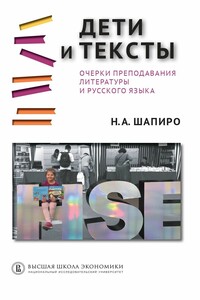
Книга посвящена изучению словесности в школе и основана на личном педагогическом опыте автора. В ней представлены наблюдения и размышления о том, как дети читают стихи и прозу, конкретные методические разработки, рассказы о реальных уроках и о том, как можно заниматься с детьми литературой во внеурочное время. Один раздел посвящен тому, как учить школьников создавать собственные тексты. Издание адресовано прежде всего учителям русского языка и литературы и студентам педагогических вузов, но может быть интересно также родителям школьников и всем любителям словесности. В формате PDF A4 сохранен издательский макет.
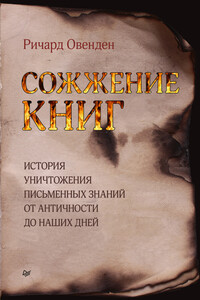
На протяжении всей своей истории люди не только создавали книги, но и уничтожали их. Полная история уничтожения письменных знаний от Античности до наших дней – в глубоком исследовании британского литературоведа и библиотекаря Ричарда Овендена.
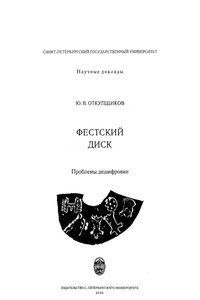
Данная публикация посвящена трудному и запутанному вопросу по дешифровке таинственного памятника древней письменности — глиняного диска, покрытого с обеих сторон надписью из штампованных фигурок, расположенных по спирали. Диск был найден в 1908 г. на Крите при раскопках на месте древнего Феста. Было предпринято большое количество «чтений» этого памятника, но ни одно из них до сих пор не принято в науке, хотя литература по этому вопросу необозрима.Для специалистов по истории древнего мира, по дешифровке древних письменностей и для всех интересующихся проблемами дешифровки памятников письменности.
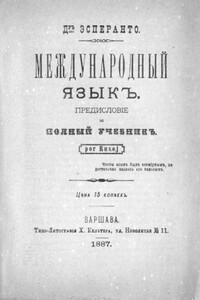
Книга послужила импульсом к возникновению такого социального феномена, как движение сторонников языка эсперанто, которое продолжает развиваться во всём мире уже на протяжении более ста лет.

В книге рассказывается история главного героя, который сталкивается с различными проблемами и препятствиями на протяжении всего своего путешествия. По пути он встречает множество второстепенных персонажей, которые играют важные роли в истории. Благодаря опыту главного героя книга исследует такие темы, как любовь, потеря, надежда и стойкость. По мере того, как главный герой преодолевает свои трудности, он усваивает ценные уроки жизни и растет как личность.
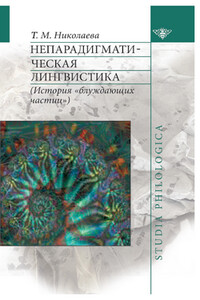
Данная монография посвящена ранее не описанному в языкознании полностью пласту языка – партикулам. В первом параграфе книги («Некоторые вводные соображения») подчеркивается принципиальное отличие партикул от того, что принято называть частицами. Автор выявляет причины отталкивания традиционной лингвистики от этого языкового пласта. Демонстрируется роль партикул при формировании индоевропейских парадигм. Показано также, что на более ранних этапах существования у славянских языков совпадений значительно больше.